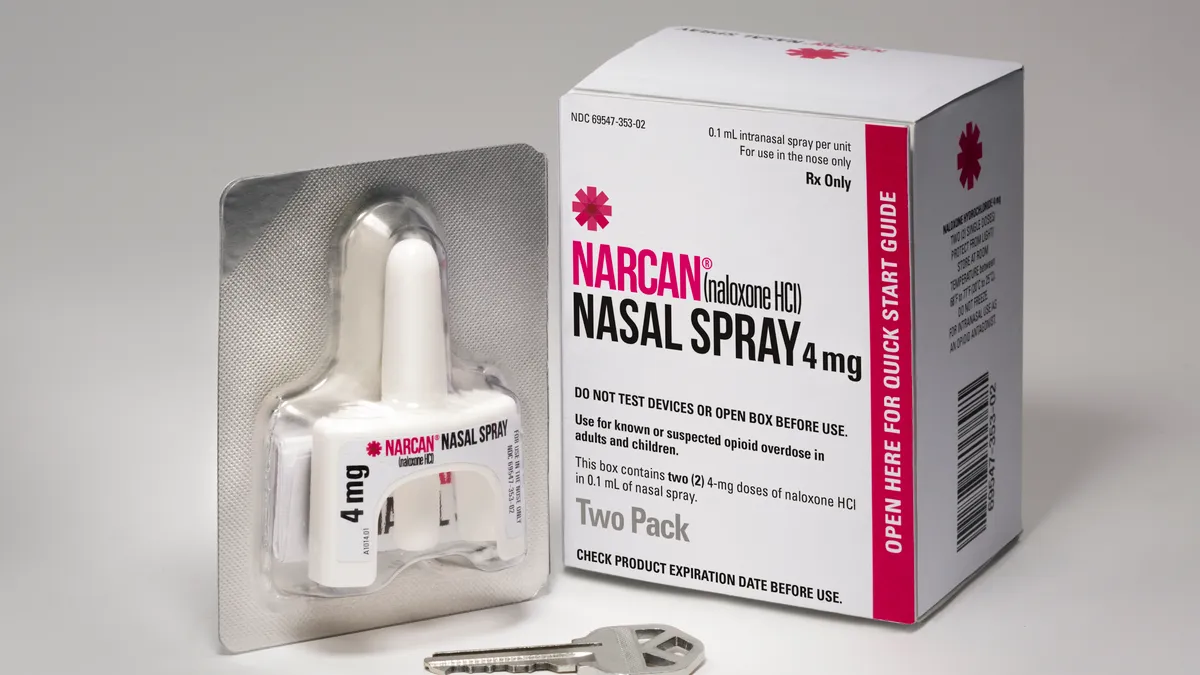Dive Brief:
- A new online course produced by the American Federation of Teachers in collaboration with Harvard Medical School is designed to help administrators, teachers, counselors and other school support personnel better understand the extent of the national opioid epidemic, its impact on schools and how to respond to the crisis as it affects students, Education Week reports.
- As more families are impacted by the effects of opioid addiction, including the rising death rate associated with use of the drug, a growing number of school personnel are forced to deal with the fallout when it comes to their students.
- Students and their families are also increasingly faced with addiction and its effects, and school staff members need to know how to use naloxone — a medication that works to counteract an overdose — as well as how to support students in crisis without stigmatizing the problem.
Dive Insight:
The growing opioid crisis is one of the biggest social issues confronting schools today, both directly and indirectly. Opioid addiction is increasing the number of students absent from school and who need special education placement, as well as impacting the number of students being placed in foster care — an issue that requires its own set of supports for students.
Schools need to consider several matters related to dealing with the crisis. Though some schools have resisted, most secondary level schools are now stocking Narcan — also known as naloxone — but staff members need to know when and how to administer it. Even some elementary schools are now considering its use. A number are also looking at drug testing for students and teachers. The problem additionally highlights the need for more counselors and mental health services at schools, in addition to more general education about the matter.
Courses like the one from AFT and Harvard Medical School can be helpful in providing professional development for teachers, but students must be educated about the issue, as well. DARE has updated its program to focus on opioid addiction, and the "This is (Not) About Drugs" educational program is also showing some success. Furthermore, the RAND Corporation has developed a program specifically for middle school students, and the federal government has its own set of resources available.
However, local health departments and mental health agencies may be the best partners in helping to educate students about how the opioid crisis is affecting their community, and where they can seek help for themselves or family members.







 Dive Awards
Dive Awards




